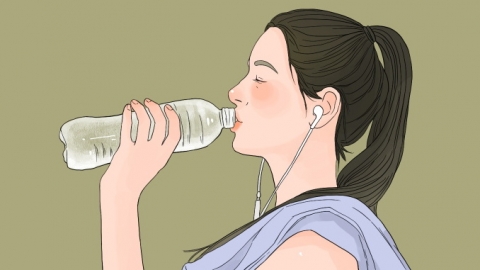Why is it not advisable to drink water directly for heatstroke?
Heatstroke patients should not drink water directly, as it may generally cause vomiting and aspiration, increase the burden on the heart, disrupt the electrolyte balance, hinder the heat dissipation process, and lead to water intoxication. If any abnormalities occur, prompt medical attention is recommended. Detailed explanations are as follows:

1. Possible vomiting and aspiration: Heatstroke patients often experience confusion or coma, with impaired swallowing function. Drinking water directly may easily cause liquid to enter the trachea, triggering coughing, choking, or even suffocation, endangering life; thus, it is unsuitable to drink water directly.
2. Increased burden on the heart: Heatstroke places the body in a state of high fever and stress, already exerting significant pressure on cardiac function. Drinking large amounts of water directly rapidly increases blood volume, further straining the heart and affecting the normal functioning of the circulatory system.
3. Disruption of electrolyte balance: Excessive sweating in heatstroke patients has already caused significant loss of electrolytes such as sodium and potassium. Drinking pure water directly dilutes the remaining electrolytes in the body, worsening the imbalance and potentially causing muscle cramps, arrhythmias, and other issues.
4. Hindrance to the heat dissipation process: Drinking large amounts of water directly causes gastrointestinal blood vessels to dilate, concentrating excessive blood flow in the digestive system and reducing skin blood circulation. This diminishes the skin's ability to dissipate heat, making it unfavorable for lowering body temperature and delaying recovery from the condition.
5. Risk of water intoxication: Heatstroke may impair kidney metabolic function. Drinking large amounts of water directly may cause the body to be unable to excrete water promptly, leading to fluid retention, water intoxication, and symptoms such as headache, vomiting, and altered consciousness, thereby worsening the condition.
When encountering a heatstroke patient, avoid giving them water directly. Instead, move them to a cool place, wipe their body with a wet towel to reduce body temperature, and contact medical personnel as soon as possible. Qualified healthcare professionals should administer intravenous fluids to replenish fluids and electrolytes safely and effectively.




